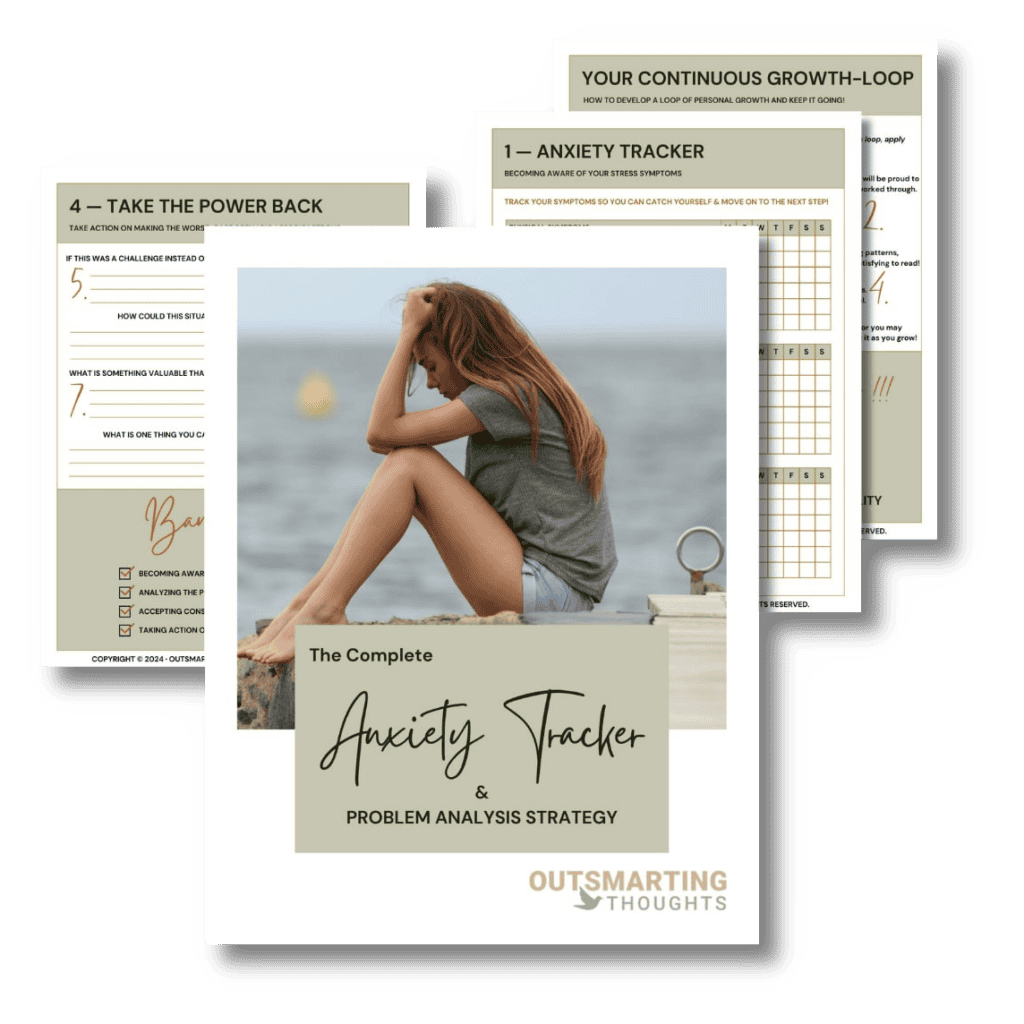Wanna know why maintaining personal autonomy feels so damn hard sometimes, especially when you’re just trying to do the right thing? This post is dedicated to making you break up with people-pleasing & regaining your personal power.
Ever been on that brain fog roundabout, questioning yourself about what’s the right thing to do? You’ve probably been called ‘too difficult’ for trying to set boundaries. Or maybe you’ve spent YEARS giving too much time, energy, and everything away, just to keep the peace with the dominant personalities in your life. But that kind of overgiving? That leads straight to burnout, bitterness, and constant anxiety. We overachievers want to be everything for everyone, but in the process, we forget we’re allowed to also belong to ourselves.
What you’re going to learn is how to recognize autonomy for what it truly is: not entitlement, not avoidance, but ownership of your own resources. You’ll see what autonomy looks like in real, practical moments, and how to stop giving away your time, energy, and attention like they’re public property.
After you have learned to step into your role as captain of your own ship, you’ll be able to make stronger decisions, reclaim your time, and protect your energy without spiraling into guilt. You’ll feel stronger, more grounded, more aligned with your values, and more like the version of who actually gets to run your own life.
This post is all about maintaining personal autonomy, so you can lead your life with clarity, direction, and dignity, not apology.
Maintaining Personal Autonomy
Maintaining personal autonomy can easily get twisted into something it’s not. You’ve probably heard a lot of these misconceptions: someone setting boundaries gets called selfish, cold, or ‘too difficult’.
The psychology behind maintaining personal autonomy runs way deeper than ego. It’s not about pushing people away, or refusing to compromise. It’s way more about knowing what’s yours to give, and giving it from a place of conscious choice, instead of obligation. That distinction changes EVERYTHING!
When you start treating your time, money, energy, and mental bandwidth like your own private stash of actual, valuable resources, you begin to understand the power of ownership. Personal autonomy is like being the captain of the ship, and the ship, are your valuable resources. This is NOT entitlement, this is truly, honestly, all yours. It’s not about owning others, but about owning your own resources.
You’re not trying to hijack someone else’s course. You’re simply steering your own direction. In control of what’s truly yours. So, we are going to explore how to reframe autonomy as something powerful, relational, and necessary. Let’s dive in!
Why Personal Autonomy Gets Misunderstood
Society loves to distort autonomy into something threatening. ESPECIALLY if you’re someone who’s used to over-giving, people-pleasing, or managing other people’s emotions!!! The moment you reclaim your time, or say no without a novel or reasons, someone’s bound to label you as ‘difficult’, or worse, selfish.
Dominant personalities & societies love making you feel insecure about this, so you don’t reclaim your actual power. But maintaining personal autonomy is really about retrieving self-respect. It’s the unshakable clarity that your time, money, energy, and attention, are truly yours to manage. It’s about not becoming someone else’s doormat. And most especially, it’s about recognizing that you’re the captain of your own ship. Indeed, that doesn’t mean you get to control the ocean, or anyone else’s course. But it does mean that you’re in charge of where you are headed, of what you ‘bring on board’, and how you spend your fuel.
RELATED POST:
How To Reclaim Your Power: An Overachiever’s Strategy For Leveling Up In Strength & Autonomy
Here’s how to tell the difference between autonomy & coercive control relatively easily: autonomy isn’t loud. It doesn’t scream or stomp, instead, it just quietly decides. It calmly walks away, and states ‘that doesn’t work for me’. It’s a power that doesn’t try to overpower. Instead, it protects. Honestly, autonomy draws a line: not to push people around, but to keep your integrity in.
Especially in families & cultures where being easygoing is rewarded more than being true to yourself, this is hard. But the more you anchor into your autonomy, the more you realize: it’s not about becoming selfish. It’s about refusing to abandon yourself to ‘keep the peace with dominant people’. You’re not here to be a pushover. You’re here to be sovereign, in charge, and in control of your own life & resources.
What ‘Owning Your Ship’ Really Looks Like
When you strip away the drama, doubt, and guilt, maintaining personal autonomy is actually pretty quiet. It’s the decision to treat your time like money. It’s knowing that every yes has a cost, and making sure it’s worth it. You don’t owe access to your energy just because someone asks nicely. You don’t have to justify your boundaries like you’re presenting a legal case. You’re the CEO or your resources, and you decide and choose where they go.
This isn’t about becoming rigid, unfriendly, or unhelpful. It’s about learning to say, ‘Yes, but not at my expense’. When you step into that captain mode, you don’t just react to whatever storm hits. You steer, you assess, you decide. You don’t give away your ship’s fuel just to make someone else more comfortable. Instead, you make fair trades, not unconscious people-pleasy sacrifices.
Maintaining autonomy in daily life looks like canceling plans because your body needs rest, saying no to a money request that doesn’t align with your budget, or leaving a heated argument because it drains you dry. Sure, these aren’t dramatic moves. But they’re definitely sane ones, loving ones, and most importantly, strategic ones. When you practice them regularly, your whole system starts to recognize that you’re self with yourself. And that’s where self-respect begins.
Let’s make managing stress & anxiety a little bit more practical by diving into our problem analysis strategy. There’s a solution to every problem! You’ll feel extremely relieved once you have a strategy to get out of the messy parts. We made a printable & anxiety tracker to help you out. Simply fill out the form below:

Want a free
ANXIETY TRACKER &PROBLEM ANALYSIS STRATEGY? Overcome your anxiety and stop overthinking with this
FREE Anxiety Tracker & Problem Analysis Strategy
Simply fill out the form below to get this strategy
delivered straight to your inbox!
Strategic Practices To Stay In ‘Captain Mode’
Let’s not sugarcoat: it’s not hard to want autonomy, the tricky part is maintaining it. Especially when your calendar, inbox, and relationships are all already pulling you in opposite directions! That’s why you need more than just intention. You need systems & strategy.
Pay attention to feelings of annoyance and resentment, and check in with them when you feel them come up. Did you overstep your boundaries? People please? Continue to research your internal state, ask yourself where your energy went, whether you liked how it was spent, and what you’ll do differently tomorrow. Try to find a fix for the resentment. How can you get back into calmer waters? What can you do to set things straight?
RELATED POST:
How To Avoid Stress: An Overachiever’s Strategy For Staying True To Yourself & Your Emotional Truth
Then, get ahead of the chaos. Pre-decide your boundaries. If you know that two social events in a row tend to wear you down, set the limit ahead of time, or time block an afternoon of rest. That way, when someone asks, you’re no longer scrambling to find a polite excuse. Because you already have the clarity! You don’t need a script. You just need alignment.
Lastly, when you do say yes to something, make sure it’s a fair trade. Giving your energy is fine, and sometimes even beautiful. But unconditional giving without intention? That’s not only how resentment grows, it also attracts toxic personalities! Autonomy isn’t about never helping anyone anymore. But it is about helping those you truly love, not those you have to please. AND; it’s about not doing things at your own expense. You don’t have to defend your boundaries with armor. You only need to step into the truth, that they are yours to set in the first place.
Autonomy As An Act Of Love
The idea that autonomy is cold or selfish is one of the most damaging myths out there. Because when you believe that, you become an easy target for dominant pushovers, and you inevitably start giving away your own resources. It’s truly sad to see how many people are apologizing for doing the most responsible thing you can do: leading yourself.
Maintaining personal autonomy isn’t about being unkind. It’s about being decisive and clear. It’s not a rejection of others, but a commitment to yourself, and to having the right to decide how you want to live. And that’s exactly what allows you to show up more fully, more consistently, and more respectfully in your healthy relationships. You’re not giving from pressure. You’re giving from conscious choice.
Love without autonomy becomes obligation. And over time, obligation feeds resentment, which in it’s turn, leads to relationship ruptures. That’s not care, or love. That’s slow erosion leading to toxicity. Real, honest, caring love comes from two people who respect their own needs and each other’s. From two captains who know their own route, but still choose to sail side by side.
So the next time someone calls your boundary selfish, hold on to this: nobody is allowed to belittle you into obedience. You can still care and say no. Still love, and still leave. You truly can support others, without having to abandon yourself.
Maintaining your autonomy is in every sense an act of love. Not only to yourself, but also to anyone lucky enough to be in your orbit. Because you’re not keeping score. You’re keeping your ship steady. And THAT, is what makes you reliable, caring, and trustworthy.
Maintaining Personal Autonomy (Summary)
Maintaining personal autonomy is way more than just setting boundaries. It’s about recognizing your resources: YOUR time, YOUR energy, YOUR money, and attention. These are all truly your assets, that require decisive leadership. When you take ownership of how you spend them, you’re not being selfish. You’re being strategic and in charge of your life.
In this post we explored how maintaining personal autonomy often gets misunderstood, and what it really looks like in everyday life. You learned how staying in captain mode requires strategy, boundaries and clarity, not just good intentions. And above all, you discovered autonomy isn’t about building up walls. It’s about building trust, within yourself and with others.
You’re not here to be agreeable at the cost of your own sanity. You’re here to steer. To lead. To decide. That’s not selfish. That’s self-respect. And once you really step into that truth, you’ll stop apologizing for having a life that actually works for you. So let this be your permission slip: take that wheel. You were always meant to drive.
This post was all about maintaining personal autonomy, so you can lead your life with clarity, direction, and dignity, not apology.
We aim to help you out as much as possible, but please keep in mind that the content is only for general informational and educational purposes. We offer our services based on independent research and life-experience only, and so our strategies can never serve as a substitute for professional advice. Trust me, we do not have 'everything figured out', are all still huge works in progress, but hey, what works for us, might work for you too! This is allll up for you to decide... It might not work for you, and that's okay, so cherrypick the stuff that resonates and leave the stuff that doesn't, and let's go!








